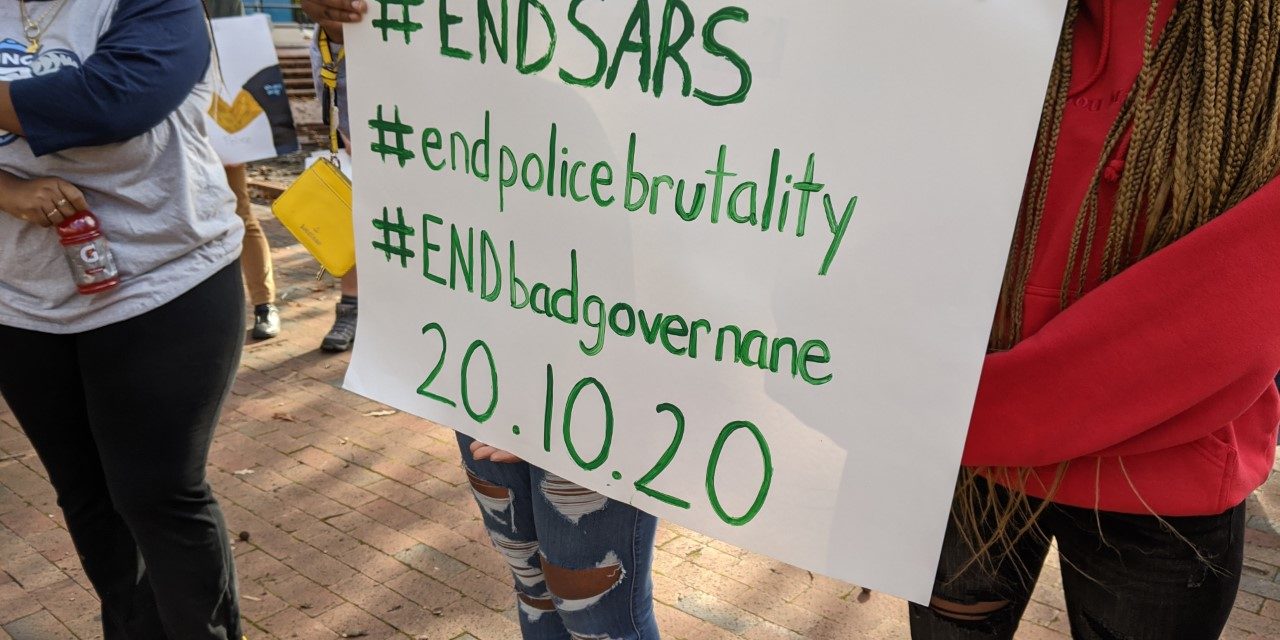Ruth Samuel, a journalism student at UNC, held a Nigerian flag as she stood in the Peace and Justice Plaza off Franklin Street. With both of her parents hailing from the country and many family members still there, she said the flag is an important symbol to her.
“It just means a lot,” said Samuel. “It’s one of the ties [to the country] I have besides my middle name, besides the food I eat at home.”
The UNC Black Congress, a student organization founded on Black activism, held a demonstration Sunday to show support for those in Nigeria and to denounce the recent police violence. Peaceful protests in the African country against the brutality of its Special Anti-Robbery Squad, or SARS, turned fatal last week. Government soldiers reportedly shot into a crowd at a toll plaza in the Nigerian state Lagos, killing at least 12 people, and more protestors have died in the following days.
Marching from the Stone Center through UNC campus to Franklin Street, dozens of Black Congress members and other students chanted for the end of such violence at the hands of police.
Samuel said the fight against such brutality, which saw renewed nationwide support this past summer following the deaths of Breonna Taylor and George Floyd, is a global one.
“At the Lekki Toll massacre,” she said, “the white [in the Nigerian flag] typically known for purity was covered with blood due to the at least 12 protestors who were killed. Bringing that [was] a sign of solidarity and also understanding that’s what I’m here for: for Nigerians on the continent, for Nigerians in the diaspora, but also for all Black people globally.”
In addition to discussing the global role of Africa, the Black Congress leaders also challenged UNC’s role in supporting anti-Black groups, individuals or decisions. Organizers advocated for the university to end partnerships with companies that profit from child labor in the country and to expand its study abroad and improve African studies programs.
“The lack of Black talent leading or participating in these study abroad programs only exemplifies UNC perpetuating a cycle of the white savior complex,” said one Black Congress leader, who asked not to be named. “While leeching off of these [resources] or information from the African American Studies Department, UNC not only furthers their white savior complex, but are parasitic in nature. You are stripping away voices from African countries by not acknowledging faults within your programs.”
Black Congress members also criticized UNC for the remaining building and street names honoring those with backgrounds in white supremacy and requested UNC Police Department have more transparency with student activists.
Samuel said she felt represented by student organizations like Black Congress by them acknowledging the violence in Nigeria, as well as addressing similar issues of oppression at UNC.
“This university is entrenched in anti-Blackness, from its founding,” Samuel said. “Slaves built the school, and [many] all over the country as well. Understanding this is not something far and distant, it’s very present, about human rights and how politics plays into that [is important.] This is all interconnected.”
UNC Black Congress also said it is raising money to send medical aid, self defense materials and more directly to protest groups in Africa.
Chapelboro.com does not charge subscription fees. You can support local journalism and our mission to serve the community. Contribute today – every single dollar matters.
Related Stories
‹
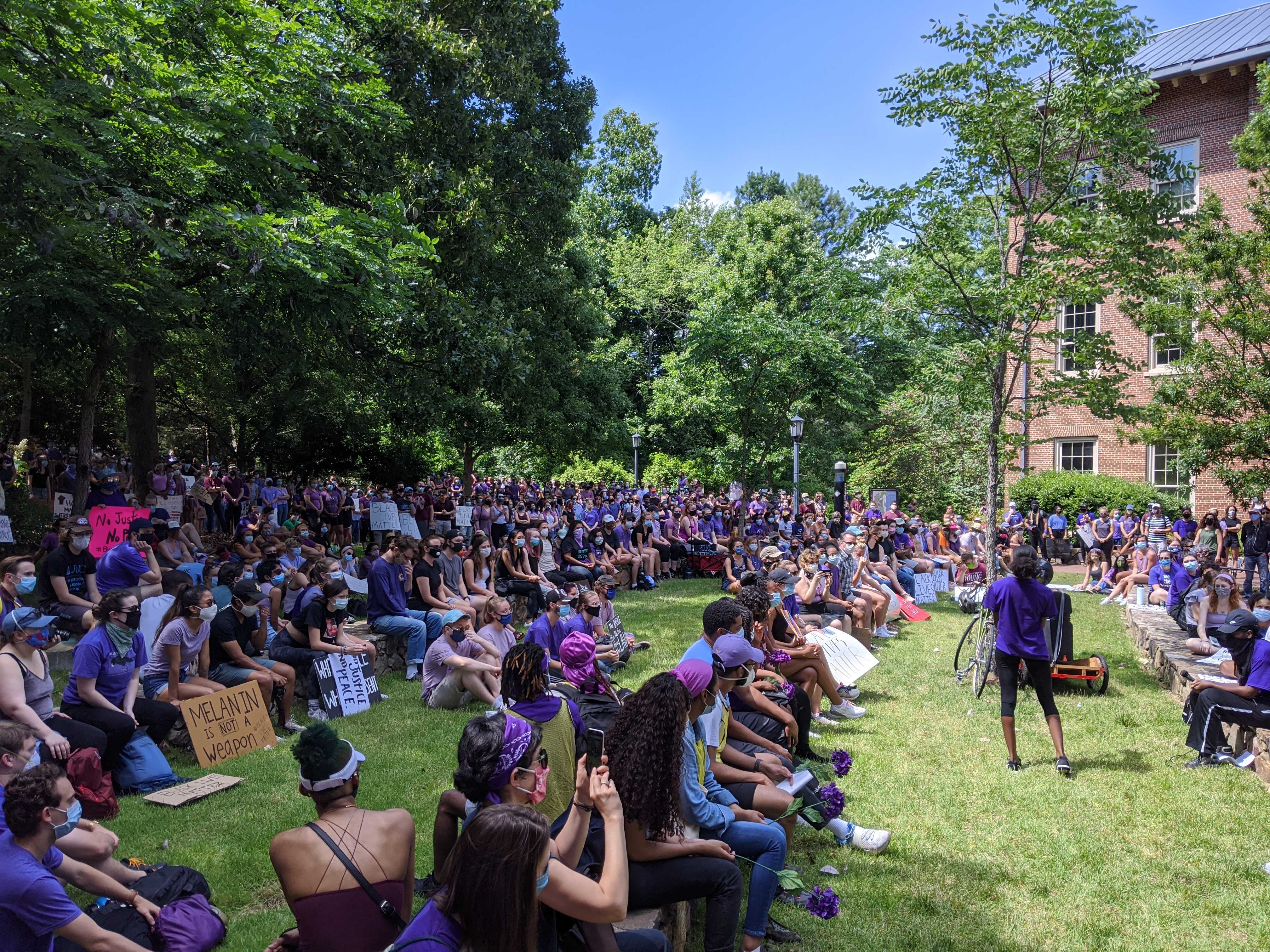
UNC Black Student Groups Lead March Across Campus, Through Chapel HillWhat began as a rally on UNC’s south campus on Friday afternoon ended as a march in downtown Chapel Hill by hundreds of demonstrators. The UNC Black Congress and Black Student Movement organized an event to denounce white supremacy, speak out against intolerance of others and to show support of African Americans during a period […]
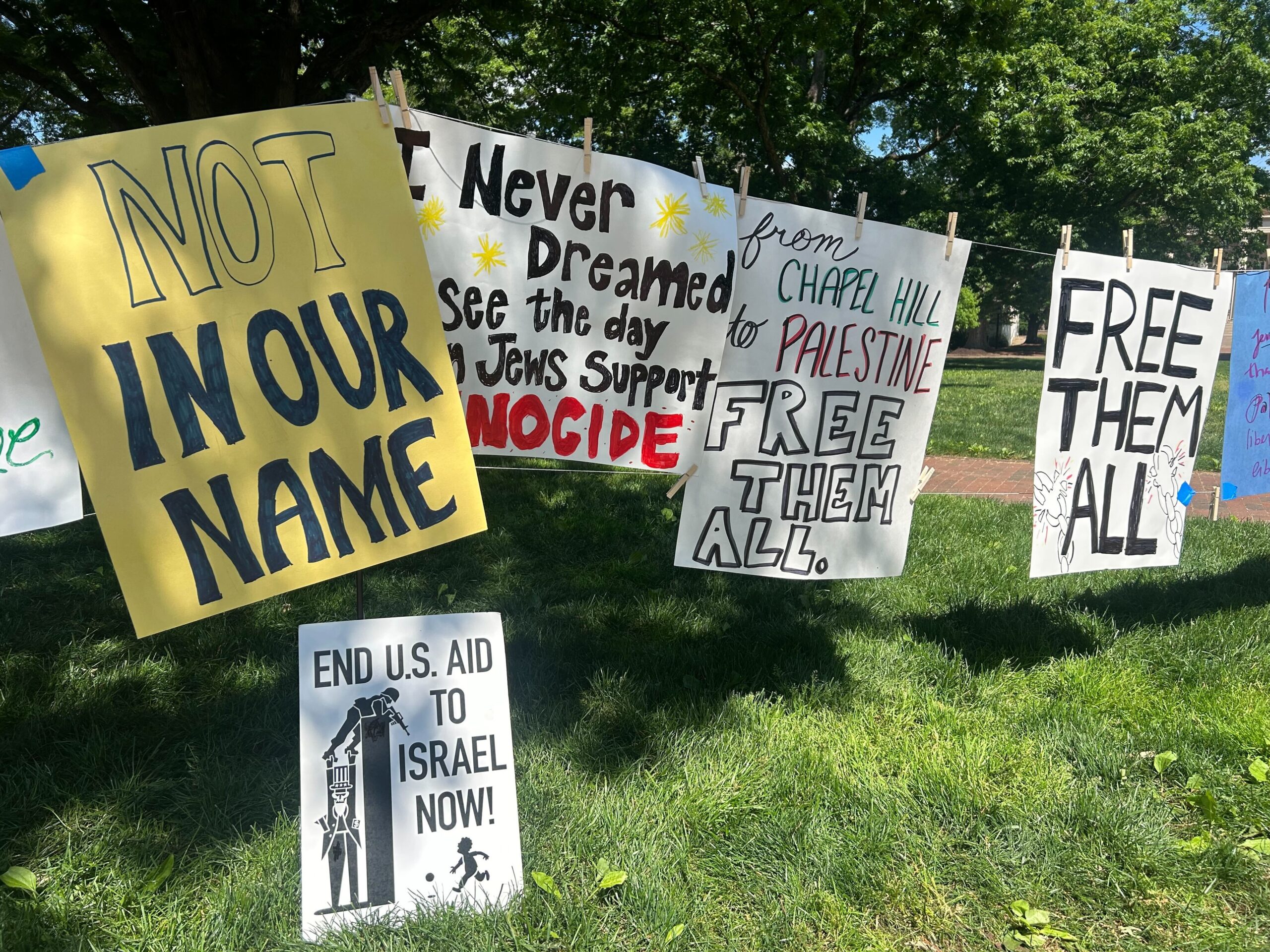
Pro-Palestine Activists Hold Event Marking Anniversary of UNC Encampment, Clash with PoliceOn April 29, 2024, hundreds of UNC community members and protesters sat on the Chapel Hill campus’ Polk Place, entering their 72nd consecutive hour on the quad in protest of Israel’s military action in Gaza and the university’s administration’s unwillingness to take a stand as well. One day later, the scenes were much more charged […]
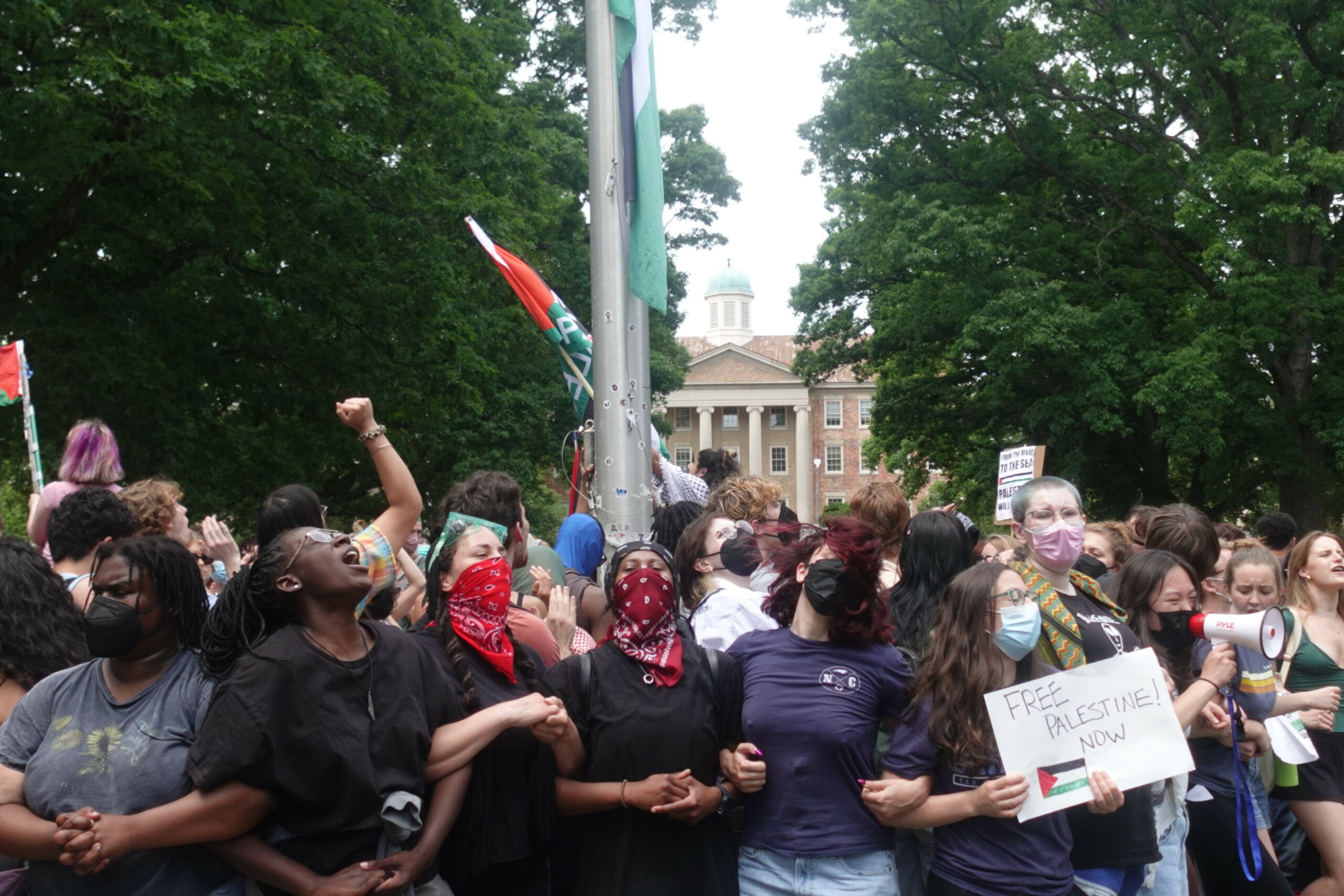
LOOK: Scenes from the UNC Gaza Solidarity Encampment, Subsequent RalliesAn encampment protest at UNC asking the university to cut ties with those who support Israel in the ongoing Gaza war saw a turbulent 24 hours — as the group attempted to maintain its position on campus before police arrested participants and swept the site. Led by the organization UNC Students for Justice in Palestine, […]
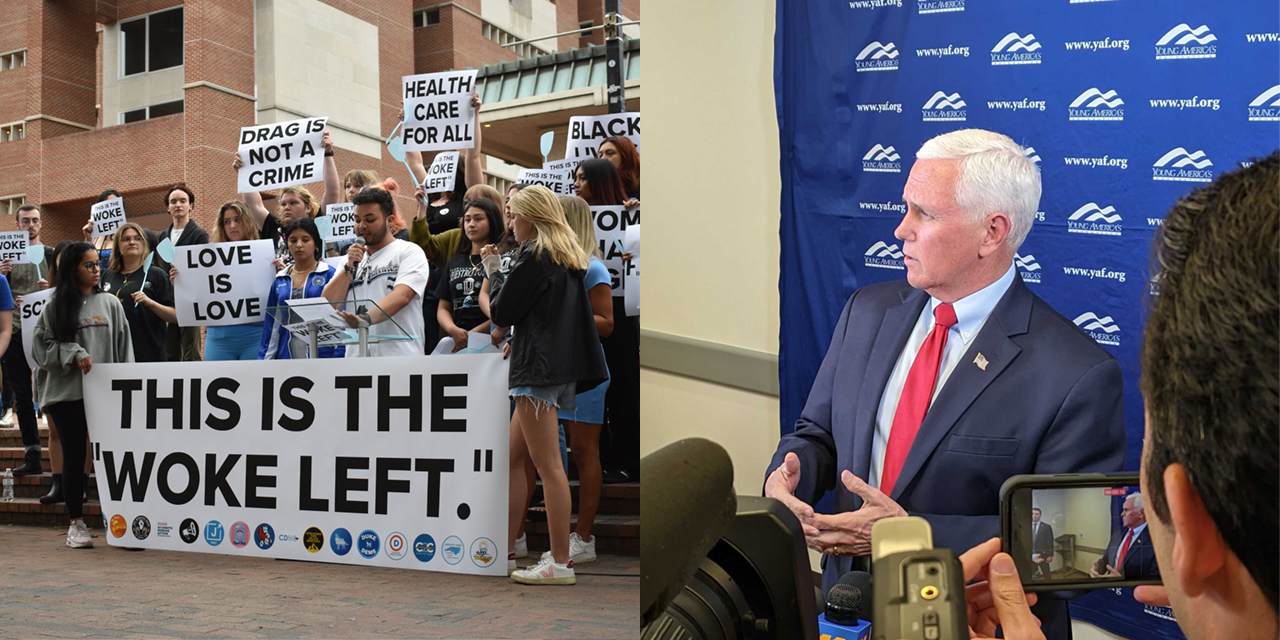
Pence Preaches Conservative Values at UNC; Democratic Students Hold Opposition RallyFormer U.S. vice president Mike Pence spoke on UNC campus Wednesday evening, drawing a protest outdoors as he promoted conservative policies.
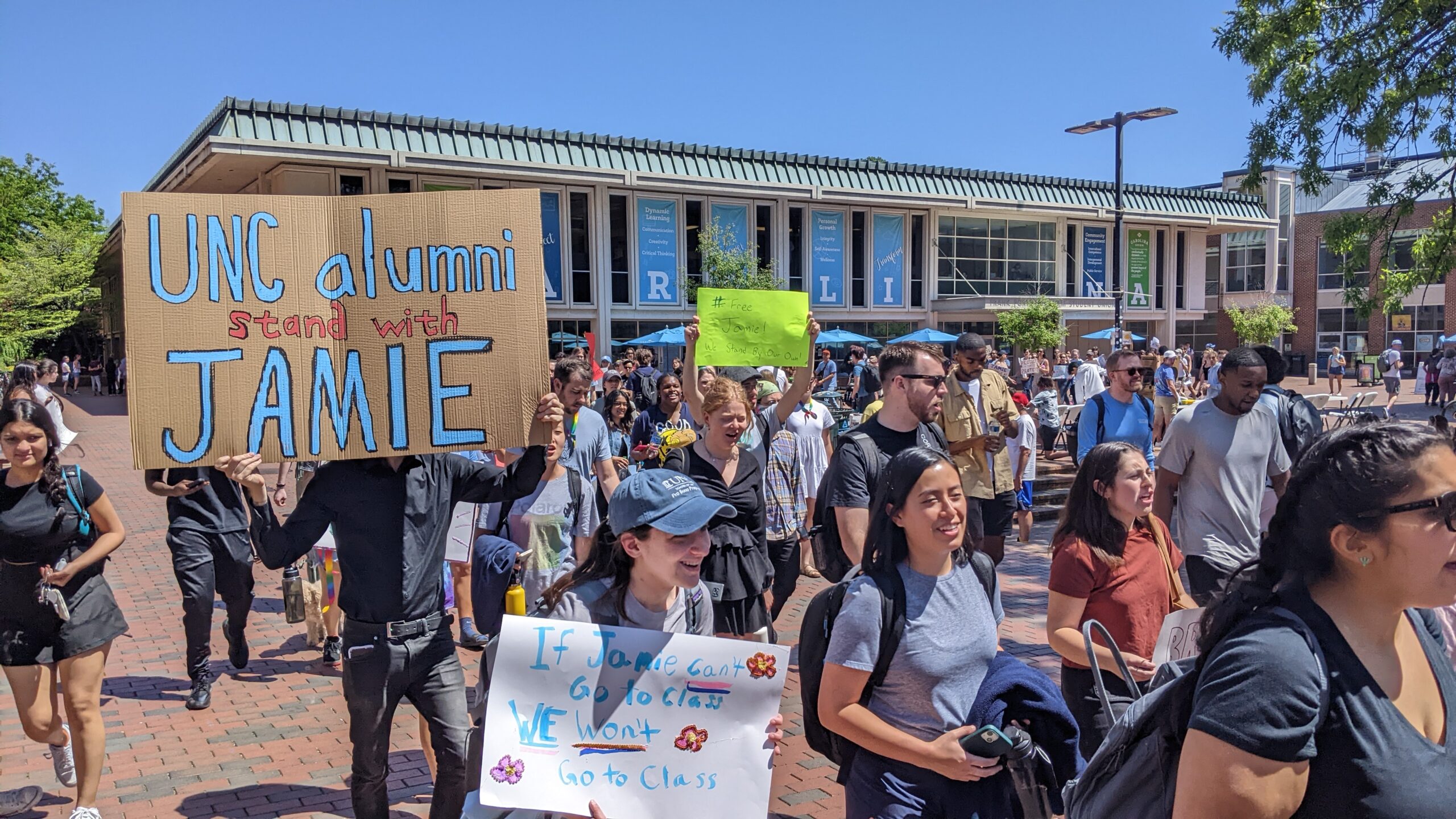
UNC Law Students Walk Out of Class in Protest Over Reported Ban of PeerSince UNC law student Jamie Marsicano was among those detained following protests and vandalism at an Atlanta public safety facility last month, their peers claim the university has not allowed them to come back to class. Friends of Marsicano’s organized a protest last Thursday against that decision, advocating for UNC to allow her to return […]
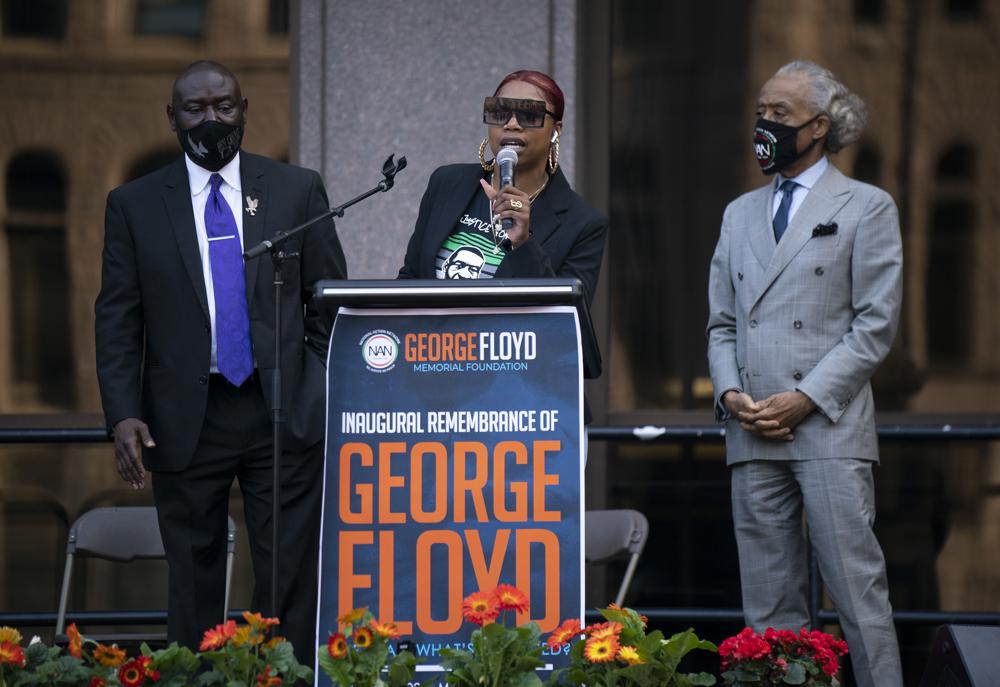
George Floyd’s Family Holds Rally, March in Brother’s MemoryWritten by MOHAMED IBRAHIM Members of George Floyd’s family, and others who lost loved ones to police encounters, joined activists and citizens in Minneapolis for a march that was one of several events planned nationwide to mark the one-year anniversary of Floyd’s death. Hundreds of people gathered for the rally Sunday in front of the courthouse in downtown […]
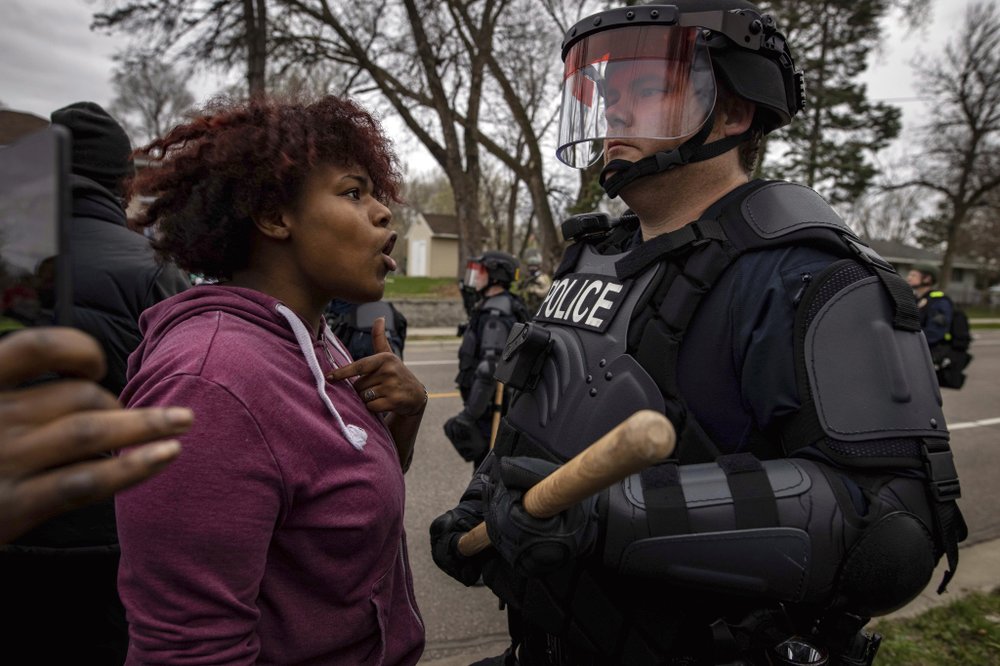
Daunte Wright Death in Minnesota Traffic Stop Sparks UnrestA Black man died after being shot by police in a Minneapolis suburb during a traffic stop and crashing his car several blocks away, sparking violent protests that lasted into the early hours Monday as officers in riot gear clashed with demonstrators and the man’s mother called for calm. The man was identified by family […]
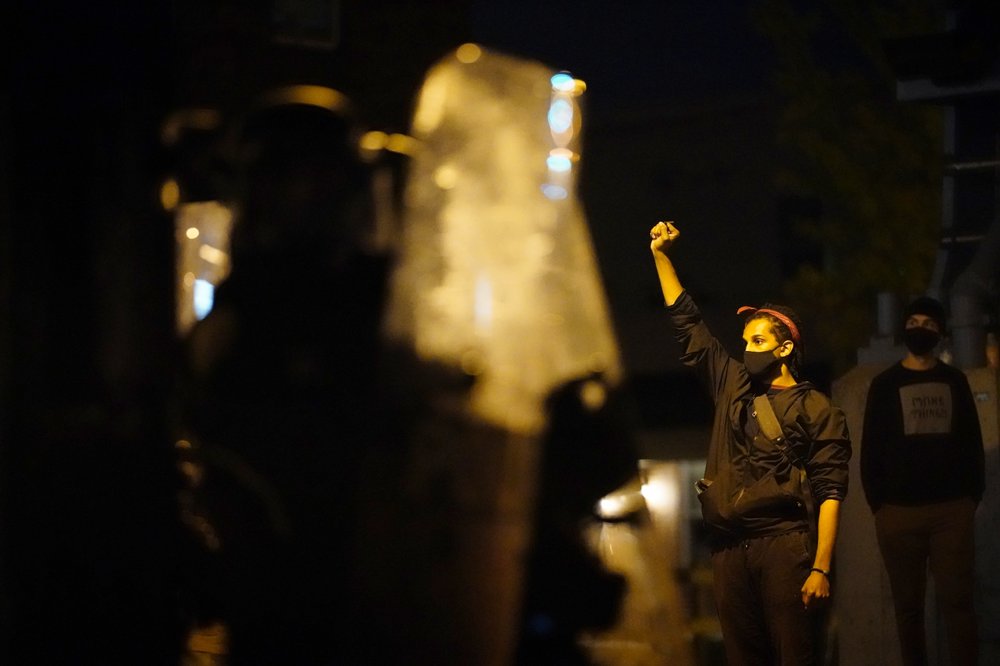
Philly Shooting Brings Policing, Racism Back Into CampaignThe fatal shooting of another Black man on America’s streets by police — with subsequent unrest — has brought the fraught issues of policing and racism in the nation back to the fore of the presidential election in its closing days. Philadelphia police say Walter Wallace Jr., 27, was shot earlier this week in the […]
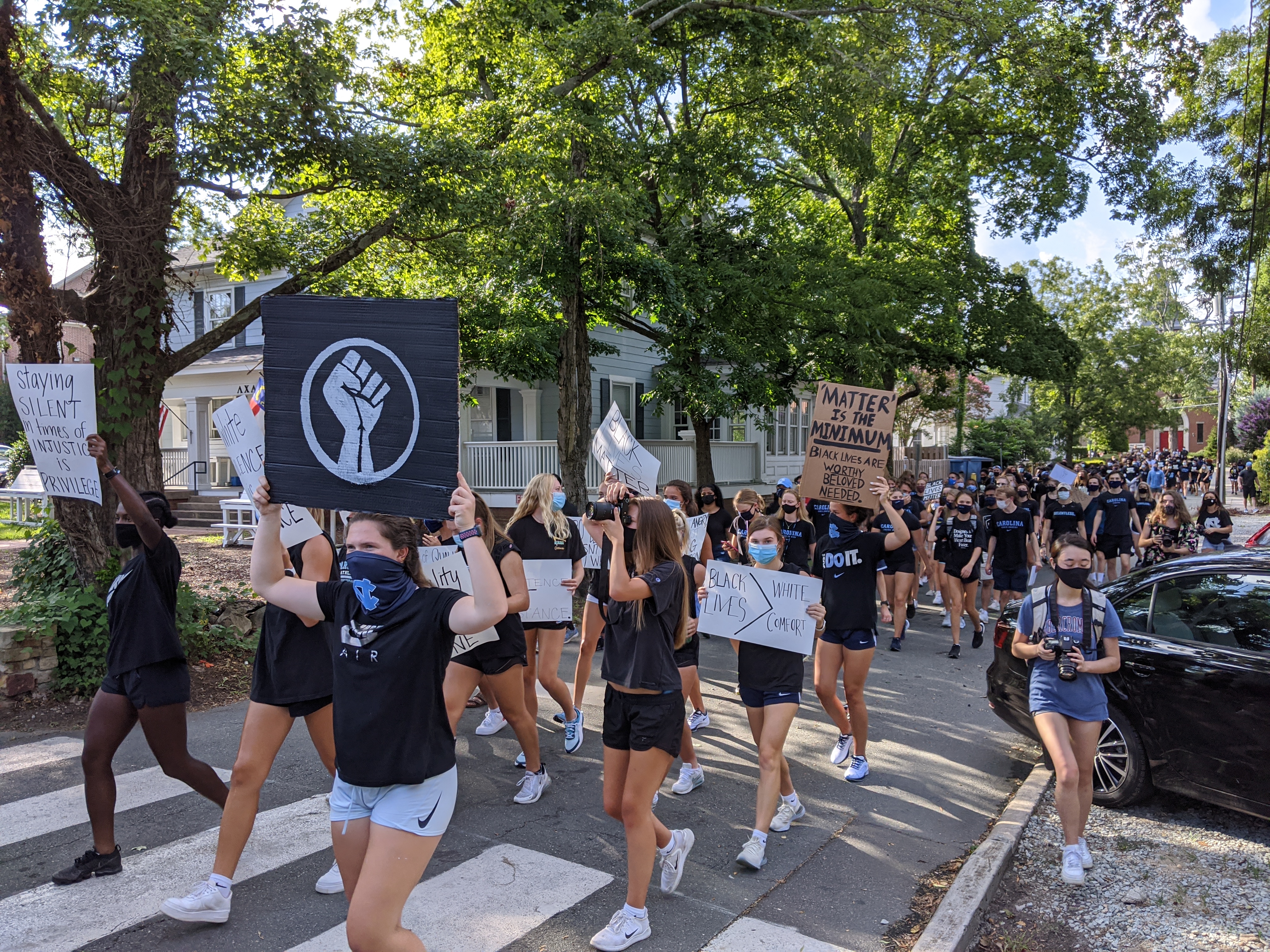
'We're Not Just Entertainment': UNC Student-Athletes March Against Racial InjusticeI’ve ever done in my life,” said UNC fifth-year senior Daniel McArthur on the steps of Morehead Planetarium. The captain and thrower for the Tar Heels men’s track and field team was one of several student-athletes who spoke on Saturday following a march organized by the Carolina Athletics […]
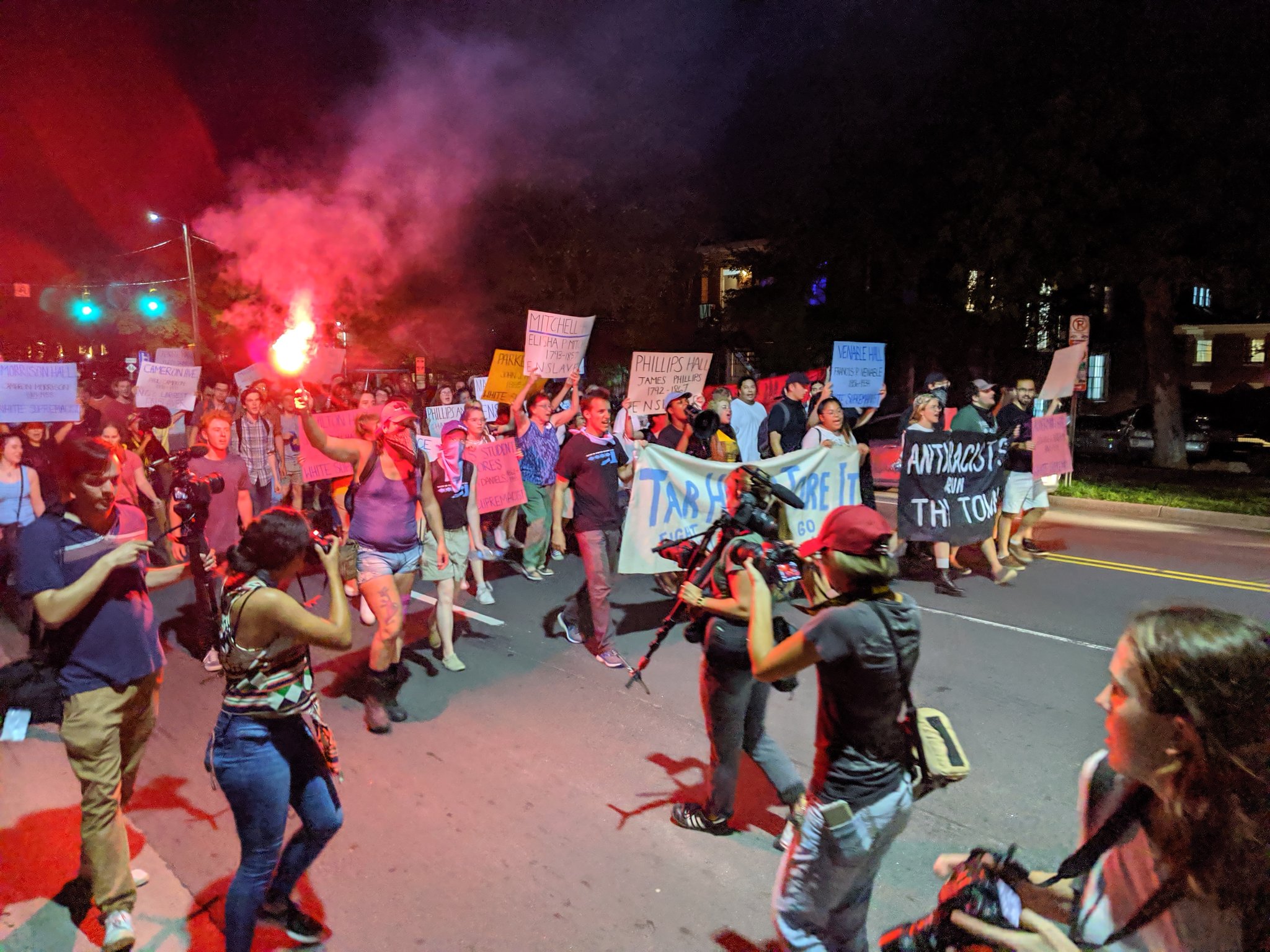
Anti-Racist Activists Look to Continue Addressing UNC's PastMore than 100 people spent Tuesday night gathered to celebrate the removal of the Confederate statue Silent Sam and champion the rights of minorities, LGBT community members and activists. The rally, however, was not just to remember the actions of protesters a year ago when they pulled down Silent Sam. It was also to encourage […]
›

